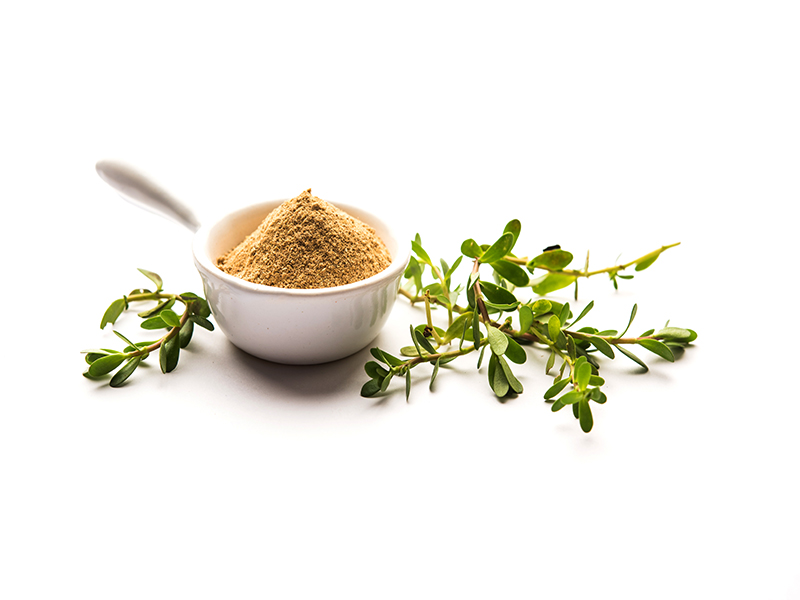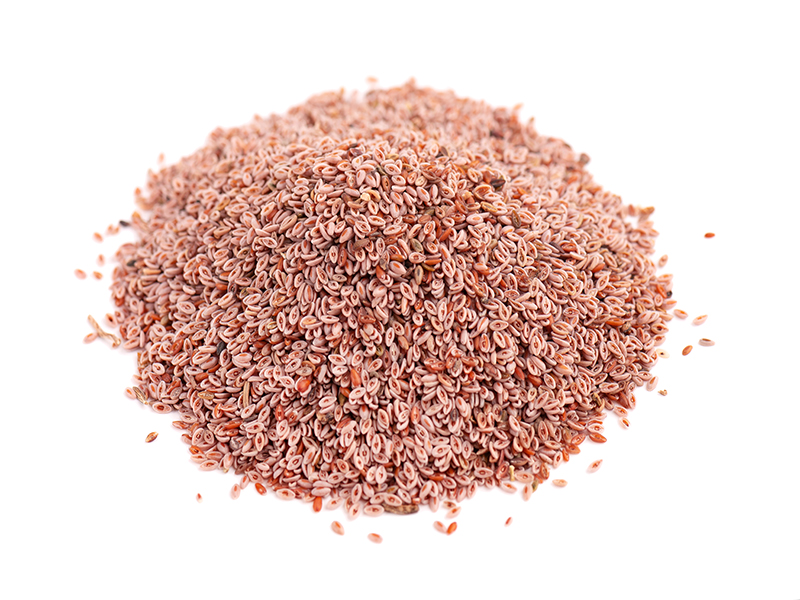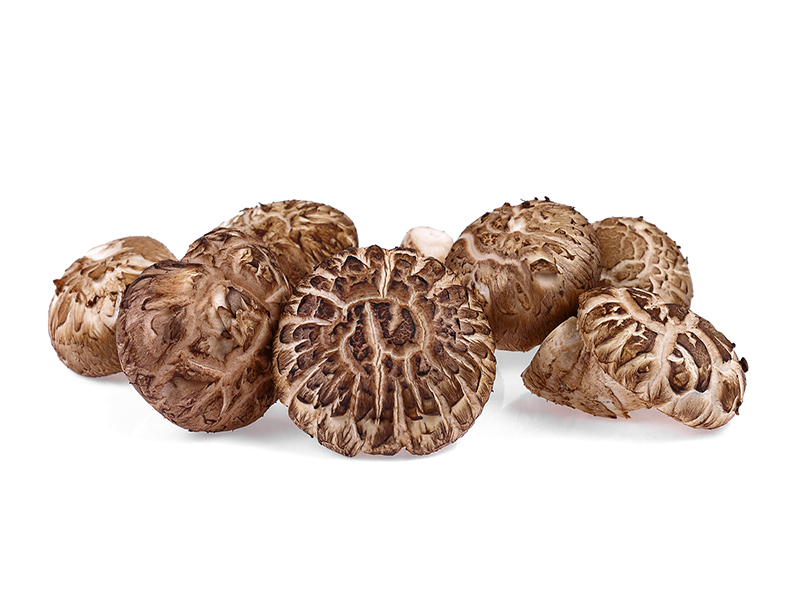Agmatine is a compound synthesized from the amino acid arginine by the enzyme arginine decarboxylase.The supplementation occurs in agmatine sulfate...
Dietary supplements are any food that can supplement and provide nutrition, sensory satisfaction, and beneficial physiological effects. More specifically, is defined as any product that can be taken by mouth that contains a dietary ingredient intended to supplement a diet. Can be split into thirteen categories and there are more than two hundred cataloged nutraceuticals, the categories are detailed below, so you can find the nutraceutical according to the divisions.
Amino Acids
Made up of carbon, hydrogen, oxygen, and nitrogen, amino acids are the building blocks of protein. There are only 20 types of amino acids, but they make up as many as 100,000 different kinds of proteins in the human body. As nutrients, they have many functions in our bodies, and are indispensable for cell, brain, and bone development. With benefits for: preventing the loss of muscle mass; stress; the healing process; mood and sleep; anti-inflammation and calcium absorption, amino acids are part of our routine without us realizing it, because they are in large quantities in foods such as pork, chicken, and beef, fish such as salmon, grouper, tuna, and sardines.
Nootropics
The term nootropic was first used in 1972 by Romanian psychologist and chemist Corneliu Giurgea to refer to a drug that improves intelligence without causing side effects. Known as "smart drugs" or intellectual drugs, they are brain-functioning substances that can improve concentration, memory, and reasoning abilities. They can improve the intellectual performance of people diagnosed with ADHD and depression, as well as healthy people who want to improve cognitive ability, memory, and productivity in studies or at work.
CDP-Choline is a brain reconstituting phospholipid, which has a protective action on the brain, as stimulates its phospholipid production and reduc...
Ginkgo biloba is a herb used in the Traditional Chinese Medicine, for carrying a combination of phenolic compounds that are important for cognitive...
Herbs, Roots & Barks
Herbs, roots, and barks are often excluded from our diet. However, through some processes, it is possible to obtain the benefits of these items in our health. There are several anti-inflammatory, anxiolytic, and vitamin components in the composition of roots, herbs, and barks. Nutraceuticals in this category include these substances from the extracts of these items.
Andrographis Paniculata is a plant used in Ayurvedic and Chinese medicine and is widely cultivated in India and China. Its fame has grown from its ...
Ashwagandha is a plant used in Ayurvedic medicine, the traditional Indian medicine. Several parts of the plant are used, but the most common in sup...
Probiotics
Probiotics are live microorganisms that act within the gut, and when consumed, improve the overall health of the body. In addition to bringing several benefits, such as facilitating digestion and the absorption of nutrients, probiotics help maintain a healthy intestinal microbiota, thus contributing to the proper functioning of the human body. It is also worth noting that probiotics improve different systems, such as the digestive and immune systems.
Bifidobacterium is a genre of anaerobic bacteria that work as probiotic and are widely present in stomach and intestines. They form the main group ...
Lactobacillus are a variety of gram-positive and anaerobic bacteria found in the gut. Lactobacillus casei can be found in the intestinal microbiota...
Stimulant
Stimulants are substances that act on the central nervous system, speeding up brain function and increasing mood. These nutraceuticals are usually used by those who want to increase their activity time and focus, such as at work or for some physical activity. Many athletes use stimulants to train with greater power, increasing energy for workouts and consequently stimulating weight loss. The best known stimulants are Caffeine and Whey Protein, which increase disposition and improve performance.
Mineral
Minerals are elements found in the earth and in food, and are one of the essential components for life. For the human body, minerals are essential to stay healthy, since they perform several tasks in the body, such as the functioning of the heart, brain, muscles, and bones, as well as for the production of enzymes and hormones. Among their main benefits are: strengthening of the immune system, reduction of cardiovascular diseases, and acting in the formation and strengthening of bones, among others.
Chromium is a an essential mineral, meaning that it must be obtained from the diet. It serves several important functions in the body. For example,...
Prebiotics
Prebiotics are substances present in certain foods that we eat, but which are not digested by the body and therefore serve as food for the beneficial microorganisms in the gut. Thus, consuming prebiotics is important for the maintenance of the gut microbiota, for the immune system, and for the body as a whole. The benefits of prebiotics include: Reduced blood cholesterol and triglyceride levels, decreased risk of developing colon and rectal cancer, regulation of blood sugar, increased absorption of calcium, iron, phosphorus and magnesium, increased satiety among others.
Carbohydrates
Carbohydrates, also known as carbohydrates or saccharides, are molecules with a structure composed of carbon, oxygen, and hydrogen, whose main function is to provide energy to the body. Among the benefits of consuming carbohydrates are: preservation of the muscles, energy for the brain, facilitation of the digestion process, lowering of cholesterol, stabilization of the blood sugar level, and others.
Chondroitin is a substance that occurs naturally in the connective tissues of people and animals. As a supplement in higher doses than is found nat...
Glucosamine is a naturally occurring compound that is chemically classified as an amino sugar. It serves as a building block for a variety of funct...
Spices
Spices are present in most homes throughout the world. Whether used in seasonings or teas, spices have historically been of great importance to commerce. As nutraceuticals, spices categorize foods that contain components such as carbohydrates, proteins, lipids, and vitamins. Because of their composition, these substances have several health benefits, such as antioxidant properties, absorption of superoxide radicals, and anti-inflammatory effects. Each condiment has its benefits, such as minimizing colds, coughs, pains, or nausea.
Extracts
Extracts are products obtained by selective withdrawal processes, extracting the active substances or fraction contained in a certain plant through appropriate technologies. We use extracts in several recipes, such as fruit pulp for juice, chemical fraction for a remedy, etc. Extracting only what is necessary from a plant optimizes its action in our organism, and brings to consumption only what is necessary for that purpose. In this way, extracts are used as nutraceuticals, bringing the essential of each item to our organism and improving our health from the ingestion of substances improved for a certain area of health.
Cocoa Extract is used in many products to accentuate color and flavor. As a nutraceutical, it has properties associated with well-being and energy....
Olive leaf extract comes from the leaves of an olive plant. It contains an active ingredient called oleuropein. This nutrient is thought to contrib...
Pycnogenol is the registered trademark brand name of French maritime pine bark extract. It’s used as a natural supplement for several conditions,...
Coenzymes
Coenzyme Q10 is essential for the production of energy (ATP) in cells, essential for body function and effective exercise. In addition, it can reduce oxidative stress that affects muscle function, improve athletic performance, and reduce fatigue. Known as coenzyme Q10, it is the most widespread on the market and prevents premature aging, improves brain function, enhances fertility, and helps prevent cancer.
Protein
Proteins are substances made up of a collection of amino acids that are connected through peptide bonds. Amino acids are molecules made up of carbon, hydrogen, oxygen, and hydrogen. Proteins can be classified into two types: fibrous proteins and globular proteins: fibrous proteins have their peptide bonds coiled like a rope, while globular proteins bend in a different design. In our bodies, proteins perform many functions, participating in all the body's biological processes, such as oxygen transport, coagulation, antibodies, hormones, muscle contraction, and also as enzymes.
Lactoferrin is a versatile substance found in milk that plays an important role in the response of the immune system. It can help promote the benef...
Collagen is an important protein in the constitution of the extracellular matrix of connective tissue, being responsible for a large part of its ph...
Hormone/Hormone Precursor
Hormones are chemical elements produced by glands in the endocrine system or special neurons in the body. Essential for proper metabolic function and control, they are not always produced naturally in the optimal quantity. Then hormone precursors come into the picture. The precursors are responsible for guiding the hormones to their respective functions, as well as supporting production at the proper levels.
Vitamin
Vitamins are organic substances found in small quantities in natural foods. In addition, it is worth noting that vitamins are indispensable for the functioning, growth, and development of the body. Although they do not supply energy, vitamins are involved in the basic processes of the body's functioning, so it is important that they are consumed in optimal amounts. And among the main benefits of Vitamins are: improved functioning of the nervous and immune systems, prevention of diseases (especially anemia), improved proper functioning of the muscles, proper growth of the skin, hair, and nails, among others.
Vitamin B9 is an essential water-soluble vitamin better known as folic acid, that can be found as a synthetic supplement. It is important for vario...
Vitamin B12, also known as cobalamin, is a water-soluble essential vitamin used as an enzymatic cofactor. In blood vessels, Vitamin B12 is driven b...
Known as Vitamin B3, Niacin is a vitamin from the B-complex family and has its differential because it is directly linked to the body’s energ...
Superfood
Known for being high-performance foods, "superfoods" are characterized by their high concentration of vitamins and minerals. Because of this large amount of nutrients, such foods provide good nutrition without requiring large amounts of consumption. Understanding what they are and the benefits they bring to our bodies is the first step to a complete nutrition, helping the proper functioning of your entire body.
Antioxidants
Antioxidants are substances that protect cells from free radicals produced by the body. They also help to improve immunity and prevent diseases such as rheumatoid arthritis, certain types of cancer, cardiovascular diseases, and age-related diseases such as Alzheimer's. Fruits, vegetables, seeds, and grains are the main natural sources. Because of their high fiber content and low cholesterol and saturated fat content, they have additional reasons for consumption. Vanilla, spices, and even cocoa and coffee also contain these beneficial substances, which means that they are not only found in lunch and dinner foods.
Fatty Acids
Fatty acids belong to a category of biological molecules called lipids (or fats), which are generally insoluble in water but highly soluble in organic solvents. Fatty acid is used as fuel by cells and is one of the main sources of energy for the human body, along with proteins and glucose. In addition, it is worth mentioning the benefits of fatty acid intake, such as: improved heart health by replacing saturated fats with unsaturated fats, improved skin health by maintaining elasticity and reducing the effect of ultraviolet rays, health for the brain, which allows for less cognitive decline, among others.
Mushroom
Mushroom is a popular term to indicate the basidiom or ascoma (formerly referred to as fruiting body) of fungi, which are the structures of sexual reproduction and belong to the group of basidiomycetes or ascomycetes, respectively. Some of these mushrooms are edible and can provide several important nutrients for the human body. Among the main benefits of consuming mushrooms are: lowering cholesterol and blood sugar, reducing heart problems, improving the functioning of the immune system as well as the digestive system, improving bone health among others.














